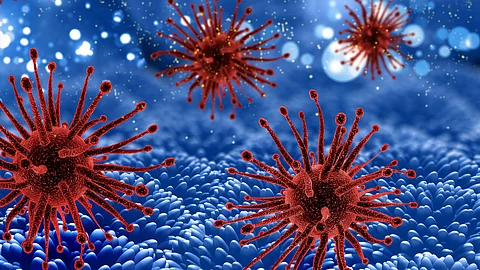Regional Responses and Expert Guidance
Experts from the Ministry of Health, ICMR, and other health bodies, including the World Health Organization (WHO), have reviewed the situation. A meeting of the Joint Monitoring Group (JMG) confirmed that the ongoing increase in respiratory illnesses in China is part of the seasonal flu pattern, which includes viruses like HMPV, Influenza, and RSV.
Several Indian states have already issued guidelines and advisories to minimize the spread of respiratory illnesses:
Delhi: Health authorities have mandated strict isolation protocols and ensured that essential medications, including oxygen for severe cases, are readily available.
Kerala: The Health Minister advised elderly individuals and pregnant women to wear masks and recommended that children stay home from school if they are ill.
Telangana: The state issued guidelines on hand hygiene and respiratory practices but reported no cases of HMPV.
Andhra Pradesh: Health officials emphasized proper hygiene, including handwashing and covering the mouth and nose when sneezing or coughing.
Challenges and Health Recommendations
There is no specific antiviral treatment or vaccine for HMPV, so treatment primarily focuses on providing supportive care, especially for vulnerable populations like young children, the elderly, and individuals with pre-existing health conditions. Government hospitals are equipped to manage severe cases.
Precautions and Public Health Measures
While two cases of HMPV in Karnataka have raised concerns, the Ministry of Health has assured the public that the country's surveillance systems are robust, and the healthcare system is prepared to handle any emerging threats. Citizens are encouraged to follow health advisories to reduce the spread of respiratory infections.
(Input from various sources)
(Rehash/Dr. Sreelekshmi P/MSM)


